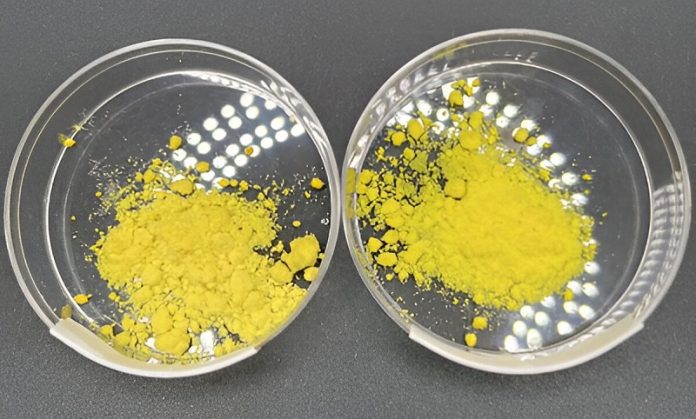
If you’ve visited a trendy café recently, you might have noticed “golden milk” on the menu.
This popular drink, made with turmeric and spices, is a modern twist on “haldi doodh,” a traditional Indian beverage used as a home remedy for colds.
Now, researchers have developed an instant, plant-based version of golden milk that retains the drink’s health benefits while extending its shelf life.
Golden milk, also known as turmeric latte, is a caffeine-free alternative to coffee, offering a unique flavor and potential health benefits.
Turmeric contains curcumin, a compound known for its anti-inflammatory and antioxidant properties.
However, extracting curcumin from turmeric is usually a complicated process that involves harsh chemicals and takes a long time. Additionally, curcumin tends to break down over time, reducing its shelf life.
Researchers from the University of Georgia, led by graduate student Anthony Suryamiharja, set out to create a more efficient way to extract and preserve curcumin in plant-based milk.
They presented their findings at the American Chemical Society’s fall meeting.
To make their version of golden milk, the team mixed turmeric powder with an alkaline solution, which made the curcumin easier to extract. This deep red solution was then added to soy milk, turning it a dark yellow color.
The researchers neutralized the mixture to make it safe and pleasant to drink. They then freeze-dried the mixture to create an instant golden milk powder.
This new method not only extracts curcumin more efficiently than existing techniques but also encapsulates it in tiny oil droplets within the soy milk. This encapsulation protects the curcumin from air and water, keeping it stable for a longer time. When consumed, the curcumin is digested like fat, making it more likely to be absorbed by the body and deliver its health benefits.
While the researchers focused on soy milk due to its high amino acid content, they believe their method can be applied to other plant-based milks, offering options for those with soy allergies. The technique could also be used to extract beneficial compounds from other plants, like blueberries, which are rich in antioxidants.
Although more research is needed before this instant golden milk hits store shelves, the initial results are promising. Suryamiharja, who isn’t a frequent golden milk drinker, reported that it tasted good.
The team hopes their work will help people understand the chemistry behind everyday beverages and enhance the nutritional value and convenience of drinks like golden milk.
If you care about nutrition, please read studies about how Mediterranean diet could protect your brain health, and the best time to take vitamins to prevent heart disease.
For more information about nutrition, please see recent studies that olive oil may help you live longer, and vitamin D could help lower the risk of autoimmune diseases.



